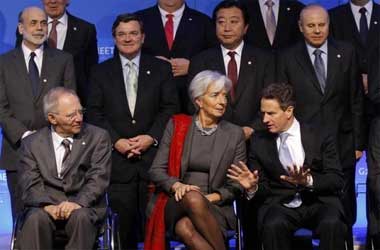Bank of England Releases Stress Test Results
 The Bank of England (BoE) conducts financial stress tests on all UK banks on a yearly basis to determine how strong their resources are and if they have the capability to bounce back after a possible recession. BoE used a hypothetical situation of testing the banks against a possible China market crash and emerging markets.
The Bank of England (BoE) conducts financial stress tests on all UK banks on a yearly basis to determine how strong their resources are and if they have the capability to bounce back after a possible recession. BoE used a hypothetical situation of testing the banks against a possible China market crash and emerging markets.
There were a number of banks tested to see if they would fall below the minimum leverage ratio which is set at three percent. Some of the banks tested including Standard Chartered Bank, Royal Bank of Scotland, Nationwide Building Society, HSBC, Santander UK and Lloyds Bank plc.
Bank of England
BoE revealed that the stress results turned out positive for all the banks and only Standard Chartered And RBS had need to be a little concerned. The RBS stress test revealed that the bank’s leverage ratio stood at 2.9 percent in the midst of a recession which was just under the three percent mark. Standard Chartered which focuses a lot of emerging markets also felt the pinch as it fell short of its tier one capital goal which is set at 6 percent.
Standard Chartered appears to have already taken preventive methods to address this deficit by ordering a $5.1 billion rights issue that will increase the capital buffer. Bill Winters, the CEO of Standard Chartered stated that the stress test was conducted based on the closing balance sheet of 2014 and the Bank has been working since then on building up its capital reserves.
In a statement, Euan Stevenson, finance director for RBS said
We are pleased with the progress we have made relative to the 2014 stress tests, but recognize we still have much to do to restore RBS to be a strong and resilient bank for our customers. During 2015 we have continued to strengthen our core capital ratio and improve our leverage ratio.
The BoE is expected to make the annual stress tests even tougher in the years to come and will require banks to have bigger capital deposits. This would require banks to pay less cash dividends to its shareholders or reduce the number of staff or cut down on their bonuses and pay hikes. The next annual stress test will most likely use a U.S market collapse as a hypothetical situation and will also test the ability of Asset managers to cope with an investor base who are willing to withdraw their money en masse.
Related Articles
European Commission Approves Shell’s Acquisition of BG Group
Royal Dutch Shell, the giant oil company, can now proceed with its plans to acquire BG Group, an oil and
Forex Rigging Fines Slapped on Several Banks
Barclays has been fined millions of pounds for rigging the forex market, and the Financial Conduct Authority (FCA) may make
Finance Ministers to Discuss Decline in Global Economic Growth
Finance ministers of the most developed economies of the world will meet this week in Germany to discuss the various



